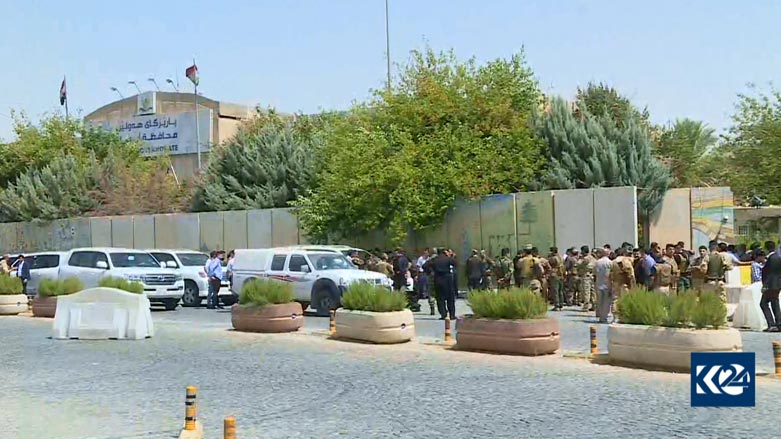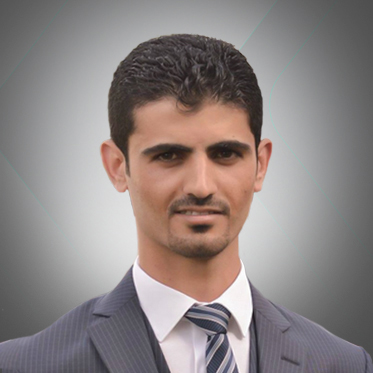Director of Erbil Security: 'Terrorists' who attacked Erbil Governorate linked to IS

ERBIL (Kurdistan 24) – The Director of Erbil Asayish (Security) has linked the three gunmen who stormed the Erbil Governorate building on Monday to the Islamic State (IS).
In an exclusive interview with Kurdistan 24 on Monday, the Director of Erbil Security, Tariq Nouri, said the persons who attacked the Erbil governorate building have ties to the IS extremist group.
He added the three “terrorists” who attacked the governorate building with grenades and light weapons had received training to conduct the operation.
The Erbil Security Director told Kurdistan 24 that the CCTV footage shows the “terrorists” entering the governorate building wearing different clothes than the ones they were in after security forces killed them. He said the suspects wore IS uniforms underneath their clothing.
He said the security forces wanted to arrest the attackers to find out who encouraged them and how they declared allegiance to IS. However, due to their resistance and use of grenades against our forces, the security forces had no other option but to kill the attackers, Nouri explained.
He noted the investigation of the “terrorist attack” is ongoing as the security forces have already identified the “terrorists.”
On Monday, security forces killed the three young men who stormed the Erbil Governorate building.
One employee at the governorate office was killed and five security forces wounded during an hours-long siege.
The Kurdistan Region’s Counter-Terrorism (CT) forces on Monday said the armed persons who attacked the Erbil Governorate building earlier in the day were youths from the Kurdistan Region and residents of the capital.
“Their names were Bilal Sulaiman, born in 2000; Rahel Mohammed, born in 2002; and Abdul-Rahman Rahim, born in 2002,” the CT statement informed. “They were all high school students.”
Editing by Karzan Sulaivany
